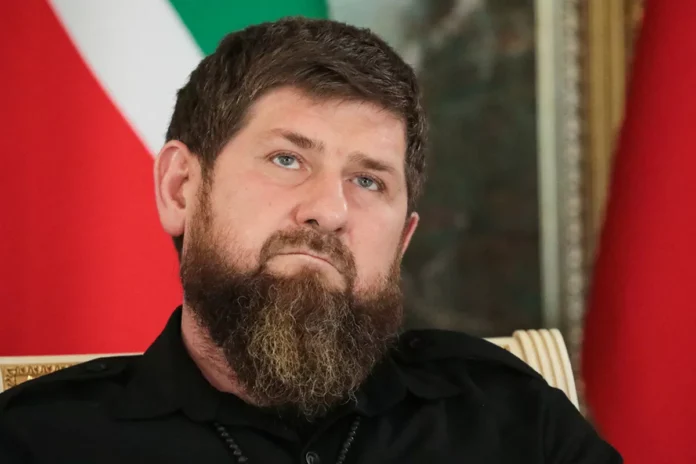The head of the Center for Countering Disinformation of the National Security and Defense Council (NSDC), Lieutenant Andriy Kovalenko, recently shed light on the significance of the drone strike on the Special Forces University in Chechnya for the controversial leader, Ramzan Kadyrov. The strike, which took place on the night of October 28, 2021, has sparked widespread speculation and theories about its implications and motives. In this article, we will explore Lieutenant Kovalenko’s statements and analyze the possible implications of the strike for Kadyrov.
According to Lieutenant Kovalenko, the strike was a clear message to Kadyrov that his actions and rhetoric will not go unnoticed. The Special Forces University in Chechnya is known to be a symbol of Kadyrov’s power and control over the region. As the head of the Center for Countering Disinformation, Kovalenko is responsible for monitoring and analyzing information warfare tactics used by foreign and domestic actors, including Kadyrov and his regime.
In his statement, Lieutenant Kovalenko explained that the strike was not just a military action, but also a strategic move in the information war. It sent a clear message to Kadyrov and his supporters that they are not untouchable and their actions will have consequences. Kovalenko also noted that the strike was a warning to other leaders and regimes who use disinformation and propaganda as a means of controlling their population.
The drone strike on the Special Forces University is not the first time Kadyrov has been targeted. In recent years, there have been several attempts on his life, including a failed assassination attempt in 2017. However, this strike is significant because it directly targeted a symbol of Kadyrov’s power and authority. It is a powerful statement that challenges his control over the region and his tactics of fear-mongering and propaganda.
According to Lieutenant Kovalenko, the strike was not just a message to Kadyrov, but also a warning to the international community. Chechnya has been under Kadyrov’s rule since 2007, and his brutal methods have often been overlooked by the international community in exchange for stability in the region. However, this strike shows that the international community is no longer willing to turn a blind eye to Kadyrov’s actions and will hold him accountable for his actions.
Kadyrov’s reaction to the strike has been predictable. In a statement, he accused the US of orchestrating the attack and claimed that the strike was a direct attack on the Chechen people. He also used the strike to further fuel his anti-Western and anti-American rhetoric, which has been a cornerstone of his regime. However, the strike has also sparked fear and uncertainty among his supporters, as it challenges their belief in Kadyrov’s invincibility.
In conclusion, the drone strike on the Special Forces University in Chechnya carries significant implications for Kadyrov. It challenges his control and power over the region and sends a clear message that his actions and propaganda will not go unchecked. It also serves as a warning to other leaders and regimes who use similar tactics to control their population. The strike has also highlighted the role of information warfare in today’s world, where actions carried out in the physical world also have an impact in the digital world. As Lieutenant Kovalenko stated, the strike was a strategic move in the information war, and it has achieved its intended goal of sending a powerful message to Kadyrov and the international community.

